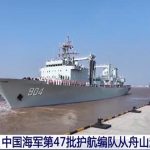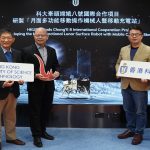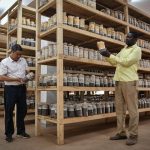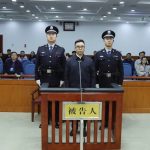China, ASEAN gain greatly from each other as neighbors, friends, and partners: ASEAN Secretary-General
Warning: Undefined array key 0 in /home/www/www.njsmst.com/wp-includes/media.php on line 795
Warning: Undefined array key 0 in /home/www/www.njsmst.com/wp-includes/media.php on line 801
Warning: Undefined array key 1 in /home/www/www.njsmst.com/wp-includes/media.php on line 801
Warning: Undefined array key 0 in /home/www/www.njsmst.com/wp-includes/media.php on line 803
Warning: Undefined array key 1 in /home/www/www.njsmst.com/wp-includes/media.php on line 803
Warning: Undefined array key 0 in /home/www/www.njsmst.com/wp-includes/media.php on line 806
Warning: Undefined array key 1 in /home/www/www.njsmst.com/wp-includes/media.php on line 806
Warning: Undefined array key 0 in /home/www/www.njsmst.com/wp-includes/media.php on line 795
Warning: Undefined array key 0 in /home/www/www.njsmst.com/wp-includes/media.php on line 801
Warning: Undefined array key 1 in /home/www/www.njsmst.com/wp-includes/media.php on line 801
Warning: Undefined array key 0 in /home/www/www.njsmst.com/wp-includes/media.php on line 803
Warning: Undefined array key 1 in /home/www/www.njsmst.com/wp-includes/media.php on line 803
Warning: Undefined array key 0 in /home/www/www.njsmst.com/wp-includes/media.php on line 806
Warning: Undefined array key 1 in /home/www/www.njsmst.com/wp-includes/media.php on line 806
Warning: Undefined array key 0 in /home/www/www.njsmst.com/wp-includes/media.php on line 795
Warning: Undefined array key 0 in /home/www/www.njsmst.com/wp-includes/media.php on line 801
Warning: Undefined array key 1 in /home/www/www.njsmst.com/wp-includes/media.php on line 801
Warning: Undefined array key 0 in /home/www/www.njsmst.com/wp-includes/media.php on line 803
Warning: Undefined array key 1 in /home/www/www.njsmst.com/wp-includes/media.php on line 803
Warning: Undefined array key 0 in /home/www/www.njsmst.com/wp-includes/media.php on line 806
Warning: Undefined array key 1 in /home/www/www.njsmst.com/wp-includes/media.php on line 806
Warning: Undefined array key 0 in /home/www/www.njsmst.com/wp-includes/media.php on line 795
Warning: Undefined array key 0 in /home/www/www.njsmst.com/wp-includes/media.php on line 801
Warning: Undefined array key 1 in /home/www/www.njsmst.com/wp-includes/media.php on line 801
Warning: Undefined array key 0 in /home/www/www.njsmst.com/wp-includes/media.php on line 803
Warning: Undefined array key 1 in /home/www/www.njsmst.com/wp-includes/media.php on line 803
Warning: Undefined array key 0 in /home/www/www.njsmst.com/wp-includes/media.php on line 806
Warning: Undefined array key 1 in /home/www/www.njsmst.com/wp-includes/media.php on line 806
Warning: Undefined array key 0 in /home/www/www.njsmst.com/wp-includes/media.php on line 795
Warning: Undefined array key 0 in /home/www/www.njsmst.com/wp-includes/media.php on line 801
Warning: Undefined array key 1 in /home/www/www.njsmst.com/wp-includes/media.php on line 801
Warning: Undefined array key 0 in /home/www/www.njsmst.com/wp-includes/media.php on line 803
Warning: Undefined array key 1 in /home/www/www.njsmst.com/wp-includes/media.php on line 803
Warning: Undefined array key 0 in /home/www/www.njsmst.com/wp-includes/media.php on line 806
Warning: Undefined array key 1 in /home/www/www.njsmst.com/wp-includes/media.php on line 806
Warning: Undefined array key 0 in /home/www/www.njsmst.com/wp-includes/media.php on line 795
Warning: Undefined array key 0 in /home/www/www.njsmst.com/wp-includes/media.php on line 801
Warning: Undefined array key 1 in /home/www/www.njsmst.com/wp-includes/media.php on line 801
Warning: Undefined array key 0 in /home/www/www.njsmst.com/wp-includes/media.php on line 803
Warning: Undefined array key 1 in /home/www/www.njsmst.com/wp-includes/media.php on line 803
Warning: Undefined array key 0 in /home/www/www.njsmst.com/wp-includes/media.php on line 806
Warning: Undefined array key 1 in /home/www/www.njsmst.com/wp-includes/media.php on line 806
Warning: Undefined array key 0 in /home/www/www.njsmst.com/wp-includes/media.php on line 827
Warning: Undefined array key 1 in /home/www/www.njsmst.com/wp-includes/media.php on line 827
Warning: Undefined array key 0 in /home/www/www.njsmst.com/wp-includes/media.php on line 70
Warning: Undefined array key 1 in /home/www/www.njsmst.com/wp-includes/media.php on line 71
Warning: Undefined array key 0 in /home/www/www.njsmst.com/wp-includes/media.php on line 70
Warning: Undefined array key 1 in /home/www/www.njsmst.com/wp-includes/media.php on line 71
Warning: Undefined array key 0 in /home/www/www.njsmst.com/wp-includes/media.php on line 795
Warning: Undefined array key 0 in /home/www/www.njsmst.com/wp-includes/media.php on line 801
Warning: Undefined array key 1 in /home/www/www.njsmst.com/wp-includes/media.php on line 801
Warning: Undefined array key 0 in /home/www/www.njsmst.com/wp-includes/media.php on line 803
Warning: Undefined array key 1 in /home/www/www.njsmst.com/wp-includes/media.php on line 803
Warning: Undefined array key 0 in /home/www/www.njsmst.com/wp-includes/media.php on line 806
Warning: Undefined array key 1 in /home/www/www.njsmst.com/wp-includes/media.php on line 806
Warning: Undefined array key 0 in /home/www/www.njsmst.com/wp-includes/media.php on line 795
Warning: Undefined array key 0 in /home/www/www.njsmst.com/wp-includes/media.php on line 801
Warning: Undefined array key 1 in /home/www/www.njsmst.com/wp-includes/media.php on line 801
Warning: Undefined array key 0 in /home/www/www.njsmst.com/wp-includes/media.php on line 803
Warning: Undefined array key 1 in /home/www/www.njsmst.com/wp-includes/media.php on line 803
Warning: Undefined array key 0 in /home/www/www.njsmst.com/wp-includes/media.php on line 806
Warning: Undefined array key 1 in /home/www/www.njsmst.com/wp-includes/media.php on line 806
Warning: Undefined array key 0 in /home/www/www.njsmst.com/wp-includes/media.php on line 795
Warning: Undefined array key 0 in /home/www/www.njsmst.com/wp-includes/media.php on line 801
Warning: Undefined array key 1 in /home/www/www.njsmst.com/wp-includes/media.php on line 801
Warning: Undefined array key 0 in /home/www/www.njsmst.com/wp-includes/media.php on line 803
Warning: Undefined array key 1 in /home/www/www.njsmst.com/wp-includes/media.php on line 803
Warning: Undefined array key 0 in /home/www/www.njsmst.com/wp-includes/media.php on line 806
Warning: Undefined array key 1 in /home/www/www.njsmst.com/wp-includes/media.php on line 806
Warning: Undefined array key 0 in /home/www/www.njsmst.com/wp-includes/media.php on line 795
Warning: Undefined array key 0 in /home/www/www.njsmst.com/wp-includes/media.php on line 801
Warning: Undefined array key 1 in /home/www/www.njsmst.com/wp-includes/media.php on line 801
Warning: Undefined array key 0 in /home/www/www.njsmst.com/wp-includes/media.php on line 803
Warning: Undefined array key 1 in /home/www/www.njsmst.com/wp-includes/media.php on line 803
Warning: Undefined array key 0 in /home/www/www.njsmst.com/wp-includes/media.php on line 806
Warning: Undefined array key 1 in /home/www/www.njsmst.com/wp-includes/media.php on line 806
Warning: Undefined array key 0 in /home/www/www.njsmst.com/wp-includes/media.php on line 795
Warning: Undefined array key 0 in /home/www/www.njsmst.com/wp-includes/media.php on line 801
Warning: Undefined array key 1 in /home/www/www.njsmst.com/wp-includes/media.php on line 801
Warning: Undefined array key 0 in /home/www/www.njsmst.com/wp-includes/media.php on line 803
Warning: Undefined array key 1 in /home/www/www.njsmst.com/wp-includes/media.php on line 803
Warning: Undefined array key 0 in /home/www/www.njsmst.com/wp-includes/media.php on line 806
Warning: Undefined array key 1 in /home/www/www.njsmst.com/wp-includes/media.php on line 806
Warning: Undefined array key 0 in /home/www/www.njsmst.com/wp-includes/media.php on line 795
Warning: Undefined array key 0 in /home/www/www.njsmst.com/wp-includes/media.php on line 801
Warning: Undefined array key 1 in /home/www/www.njsmst.com/wp-includes/media.php on line 801
Warning: Undefined array key 0 in /home/www/www.njsmst.com/wp-includes/media.php on line 803
Warning: Undefined array key 1 in /home/www/www.njsmst.com/wp-includes/media.php on line 803
Warning: Undefined array key 0 in /home/www/www.njsmst.com/wp-includes/media.php on line 806
Warning: Undefined array key 1 in /home/www/www.njsmst.com/wp-includes/media.php on line 806
Warning: Undefined array key 0 in /home/www/www.njsmst.com/wp-includes/media.php on line 827
Warning: Undefined array key 1 in /home/www/www.njsmst.com/wp-includes/media.php on line 827
Warning: Undefined array key 0 in /home/www/www.njsmst.com/wp-includes/media.php on line 70
Warning: Undefined array key 1 in /home/www/www.njsmst.com/wp-includes/media.php on line 71
Warning: Undefined array key 0 in /home/www/www.njsmst.com/wp-includes/media.php on line 70
Warning: Undefined array key 1 in /home/www/www.njsmst.com/wp-includes/media.php on line 71
Warning: Undefined array key 0 in /home/www/www.njsmst.com/wp-includes/media.php on line 795
Warning: Undefined array key 0 in /home/www/www.njsmst.com/wp-includes/media.php on line 801
Warning: Undefined array key 1 in /home/www/www.njsmst.com/wp-includes/media.php on line 801
Warning: Undefined array key 0 in /home/www/www.njsmst.com/wp-includes/media.php on line 803
Warning: Undefined array key 1 in /home/www/www.njsmst.com/wp-includes/media.php on line 803
Warning: Undefined array key 0 in /home/www/www.njsmst.com/wp-includes/media.php on line 806
Warning: Undefined array key 1 in /home/www/www.njsmst.com/wp-includes/media.php on line 806
Warning: Undefined array key 0 in /home/www/www.njsmst.com/wp-includes/media.php on line 795
Warning: Undefined array key 0 in /home/www/www.njsmst.com/wp-includes/media.php on line 801
Warning: Undefined array key 1 in /home/www/www.njsmst.com/wp-includes/media.php on line 801
Warning: Undefined array key 0 in /home/www/www.njsmst.com/wp-includes/media.php on line 803
Warning: Undefined array key 1 in /home/www/www.njsmst.com/wp-includes/media.php on line 803
Warning: Undefined array key 0 in /home/www/www.njsmst.com/wp-includes/media.php on line 806
Warning: Undefined array key 1 in /home/www/www.njsmst.com/wp-includes/media.php on line 806
Warning: Undefined array key 0 in /home/www/www.njsmst.com/wp-includes/media.php on line 795
Warning: Undefined array key 0 in /home/www/www.njsmst.com/wp-includes/media.php on line 801
Warning: Undefined array key 1 in /home/www/www.njsmst.com/wp-includes/media.php on line 801
Warning: Undefined array key 0 in /home/www/www.njsmst.com/wp-includes/media.php on line 803
Warning: Undefined array key 1 in /home/www/www.njsmst.com/wp-includes/media.php on line 803
Warning: Undefined array key 0 in /home/www/www.njsmst.com/wp-includes/media.php on line 806
Warning: Undefined array key 1 in /home/www/www.njsmst.com/wp-includes/media.php on line 806
Warning: Undefined array key 0 in /home/www/www.njsmst.com/wp-includes/media.php on line 795
Warning: Undefined array key 0 in /home/www/www.njsmst.com/wp-includes/media.php on line 801
Warning: Undefined array key 1 in /home/www/www.njsmst.com/wp-includes/media.php on line 801
Warning: Undefined array key 0 in /home/www/www.njsmst.com/wp-includes/media.php on line 803
Warning: Undefined array key 1 in /home/www/www.njsmst.com/wp-includes/media.php on line 803
Warning: Undefined array key 0 in /home/www/www.njsmst.com/wp-includes/media.php on line 806
Warning: Undefined array key 1 in /home/www/www.njsmst.com/wp-includes/media.php on line 806
Warning: Undefined array key 0 in /home/www/www.njsmst.com/wp-includes/media.php on line 827
Warning: Undefined array key 1 in /home/www/www.njsmst.com/wp-includes/media.php on line 827
Warning: Undefined array key 0 in /home/www/www.njsmst.com/wp-includes/media.php on line 70
Warning: Undefined array key 1 in /home/www/www.njsmst.com/wp-includes/media.php on line 71
Warning: Undefined array key 0 in /home/www/www.njsmst.com/wp-includes/media.php on line 70
Warning: Undefined array key 1 in /home/www/www.njsmst.com/wp-includes/media.php on line 71
Warning: Undefined array key 0 in /home/www/www.njsmst.com/wp-includes/media.php on line 795
Warning: Undefined array key 0 in /home/www/www.njsmst.com/wp-includes/media.php on line 801
Warning: Undefined array key 1 in /home/www/www.njsmst.com/wp-includes/media.php on line 801
Warning: Undefined array key 0 in /home/www/www.njsmst.com/wp-includes/media.php on line 803
Warning: Undefined array key 1 in /home/www/www.njsmst.com/wp-includes/media.php on line 803
Warning: Undefined array key 0 in /home/www/www.njsmst.com/wp-includes/media.php on line 806
Warning: Undefined array key 1 in /home/www/www.njsmst.com/wp-includes/media.php on line 806
Warning: Undefined array key 0 in /home/www/www.njsmst.com/wp-includes/media.php on line 795
Warning: Undefined array key 0 in /home/www/www.njsmst.com/wp-includes/media.php on line 801
Warning: Undefined array key 1 in /home/www/www.njsmst.com/wp-includes/media.php on line 801
Warning: Undefined array key 0 in /home/www/www.njsmst.com/wp-includes/media.php on line 803
Warning: Undefined array key 1 in /home/www/www.njsmst.com/wp-includes/media.php on line 803
Warning: Undefined array key 0 in /home/www/www.njsmst.com/wp-includes/media.php on line 806
Warning: Undefined array key 1 in /home/www/www.njsmst.com/wp-includes/media.php on line 806
Warning: Undefined array key 0 in /home/www/www.njsmst.com/wp-includes/media.php on line 795
Warning: Undefined array key 0 in /home/www/www.njsmst.com/wp-includes/media.php on line 801
Warning: Undefined array key 1 in /home/www/www.njsmst.com/wp-includes/media.php on line 801
Warning: Undefined array key 0 in /home/www/www.njsmst.com/wp-includes/media.php on line 803
Warning: Undefined array key 1 in /home/www/www.njsmst.com/wp-includes/media.php on line 803
Warning: Undefined array key 0 in /home/www/www.njsmst.com/wp-includes/media.php on line 806
Warning: Undefined array key 1 in /home/www/www.njsmst.com/wp-includes/media.php on line 806
Warning: Undefined array key 0 in /home/www/www.njsmst.com/wp-includes/media.php on line 795
Warning: Undefined array key 0 in /home/www/www.njsmst.com/wp-includes/media.php on line 801
Warning: Undefined array key 1 in /home/www/www.njsmst.com/wp-includes/media.php on line 801
Warning: Undefined array key 0 in /home/www/www.njsmst.com/wp-includes/media.php on line 803
Warning: Undefined array key 1 in /home/www/www.njsmst.com/wp-includes/media.php on line 803
Warning: Undefined array key 0 in /home/www/www.njsmst.com/wp-includes/media.php on line 806
Warning: Undefined array key 1 in /home/www/www.njsmst.com/wp-includes/media.php on line 806
Warning: Undefined array key 0 in /home/www/www.njsmst.com/wp-includes/media.php on line 795
Warning: Undefined array key 0 in /home/www/www.njsmst.com/wp-includes/media.php on line 801
Warning: Undefined array key 1 in /home/www/www.njsmst.com/wp-includes/media.php on line 801
Warning: Undefined array key 0 in /home/www/www.njsmst.com/wp-includes/media.php on line 803
Warning: Undefined array key 1 in /home/www/www.njsmst.com/wp-includes/media.php on line 803
Warning: Undefined array key 0 in /home/www/www.njsmst.com/wp-includes/media.php on line 806
Warning: Undefined array key 1 in /home/www/www.njsmst.com/wp-includes/media.php on line 806
Warning: Undefined array key 0 in /home/www/www.njsmst.com/wp-includes/media.php on line 795
Warning: Undefined array key 0 in /home/www/www.njsmst.com/wp-includes/media.php on line 801
Warning: Undefined array key 1 in /home/www/www.njsmst.com/wp-includes/media.php on line 801
Warning: Undefined array key 0 in /home/www/www.njsmst.com/wp-includes/media.php on line 803
Warning: Undefined array key 1 in /home/www/www.njsmst.com/wp-includes/media.php on line 803
Warning: Undefined array key 0 in /home/www/www.njsmst.com/wp-includes/media.php on line 806
Warning: Undefined array key 1 in /home/www/www.njsmst.com/wp-includes/media.php on line 806
Warning: Undefined array key 0 in /home/www/www.njsmst.com/wp-includes/media.php on line 795
Warning: Undefined array key 0 in /home/www/www.njsmst.com/wp-includes/media.php on line 801
Warning: Undefined array key 1 in /home/www/www.njsmst.com/wp-includes/media.php on line 801
Warning: Undefined array key 0 in /home/www/www.njsmst.com/wp-includes/media.php on line 803
Warning: Undefined array key 1 in /home/www/www.njsmst.com/wp-includes/media.php on line 803
Warning: Undefined array key 0 in /home/www/www.njsmst.com/wp-includes/media.php on line 806
Warning: Undefined array key 1 in /home/www/www.njsmst.com/wp-includes/media.php on line 806
Warning: Undefined array key 0 in /home/www/www.njsmst.com/wp-includes/media.php on line 827
Warning: Undefined array key 1 in /home/www/www.njsmst.com/wp-includes/media.php on line 827
Warning: Undefined array key 0 in /home/www/www.njsmst.com/wp-includes/media.php on line 70
Warning: Undefined array key 1 in /home/www/www.njsmst.com/wp-includes/media.php on line 71
Warning: Undefined array key 0 in /home/www/www.njsmst.com/wp-includes/media.php on line 70
Warning: Undefined array key 1 in /home/www/www.njsmst.com/wp-includes/media.php on line 71

Editor's Note:
Relations between China and the ASEAN have continued to improve since the establishment of ASEAN-China Dialogue Relations in 1991. Over the last 30 years, the China-ASEAN relationship has achieved remarkable development and brought about tangible benefits for more than 2 billion people in 11 countries. China and the ASEAN have pursued the right path of long-standing good-neighborliness and friendship, and common development and prosperity. Recently, Global Times reporters Hu Yuwei, Zhao Juecheng, and Li Xuanmin (GT) interviewed the Secretary-General of ASEAN, Dr Kao Kim Hourn (Kao), in Indonesia, to get more insights from him on the future pathway of China-ASEAN political and economic relations.
The diplomat highlighted China's important role as one of the key partners of the ASEAN that supports its community-building efforts. He expressed his belief that the bilateral cooperation enjoys a profound foundation, covers broad areas, and will continue to yield fruitful results.
GT: How do you define the current China-ASEAN relationship?
Kao: In 32 years, the ASEAN and China have been working closely together, and the partnership has consistently been elevated over time. The ASEAN and China are very close in terms of geography, proximity, and cultural and historic ties. At the same time, the existing trading ties can be traced back to ancient times.
China has been our largest-standing trading partner for the last 14 years and, likewise, the ASEAN is a very large trading partner to China as well. Also, In terms of the level of engagement, there are extensive mechanisms that we have at all levels, from political, security, and economic to social and culture.
What also made us unique in China is the China-ASEAN Expo, which celebrated its 20th anniversary this year.
China has been a strong supporter of the Treaty of Amity and Cooperation in Southeast Asia (TAC). It was also the first partner to join the TAC, a very important instrument in how we resolve our differences and promote our friendly relations.
So we define the relationship in terms of how we can elevate the partnership, to what we now have at the highest level.
GT: With all 10 ASEAN member states having signed on to the China-proposed Belt and Road Initiative (BRI) agreement, and having been an important partner of the initiative for many years, what are the reasons for the ASEAN's achievements in the BRI?
Kao: The ASEAN has a massive connectivity plan. From this perspective, we have been able to take advantage of the opportunities from cooperation with China on the BRI, because the infrastructure will probably be capital intensive and require a lot of commitment.
So that's why we have a number of projects in the ASEAN that basically came about through the BRI framework cooperation. These projects are certainly supporting the ASEAN's integration on one hand, but also supporting ASEAN community building as we work to increase connectivity between the ASEAN and China. The projects range from expressways and a high-speed rail, to ports and airports among others. All these projects are of great benefit, to the member states and the people of the ASEAN.
GT: How can enhanced political mutual trust further promote the construction of the China-ASEAN community of shared future? China was also your first country to visit outside the ASEAN when you served as the ASEAN Secretary-General. Does this also indicate that high-level interactions are further enhancing political mutual trust?
Kao: In any relationships, including the ASEAN-China one, we will have to be built based on trust and confidence. This is really the key. We have witnessed that trust in all dimensions has been increasing: Political, economic, social, and cultural trust. That's why we can work together across different sectors and pillars, addressing common challenges. That's why the leaders of both sides agreed to elevate the partnership to the highest level of the Comprehensive Strategic Partnership (CSP) back in 2021.
GT: The speed of consultations on the Code of Conduct (COC) in the South China Sea between China and ASEAN countries has accelerated. What are your expectations for the COC?
Kao: First, ASEAN-China have been working together to draft the COC and adopt COC guidelines. This year, Indonesia, the current chair, and China agreed that we should continue to expedite negotiations.
Now the status is that there are a lot of discussions on how ASEAN-China should move forward to the COC negotiations.
I think the final outcomes of the COC as well as the process of negotiations are equally important because the process of negotiations reflects the spirit of working together, the spirit of how we should take the COC forward. I think we will have to sort out our differences sooner or later.Respecting sovereignty, political independence, and territorial integrity have always been the key principle of the ASEAN.
We believe that member states have the wisdom, understanding, and will to negotiate and work closely with China, using this negotiation to continue to enhance trust between ASEAN and China.
GT: You once publicly called on the UK, France, and Russia to accelerate the signing of the Protocol to the Southeast Asia Nuclear-Weapon-Free Zone (SEANWFZ) Treaties. China has stated its willingness to be the first to sign the Protocol. How do you evaluate China's efforts in maintaining regional peace and stability?
Kao: Our leaders are very clear on this issue: They truly want a region which is stable, secure, peaceful, and nuclear free. That's why they agreed to sign the SEANWFZ Treaty.
We have to work with the five nuclear weapon states to get them to sign on to the Protocol or SEANWFZ treaty. It has been a long and challenging process. But I think, for the ASEAN, we are very determined to continue to raise this issue, that we want all the five nuclear weapon states to exceed to the treaty as early as possible. In this regard, I think we should look at all possible options.
We welcome the intention and commitment of China, as China is willing to sign the protocol in South Australia. I think this is a positive signal on the part of China.
GT: Under the framework of the AUKUS agreement, Australia's deployment of nuclear submarines will cover the ocean and continental areas of Southeast Asia, which is a nuclear-weapon-free zone. After the plan was released in March, Southeast Asian countries such as Indonesia and Malaysia expressed concerns, fearing that this would exacerbate regional arms races. Will the AUKUS nuclear submarine cooperation pose a security threat to the ASEAN and the entire Asian region?
Kao: The AUKUS is a new mechanism outside of the ASEAN region. I think we will see how this will evolve because it's very new. But we're watching all the new developments very carefully.
There are certain issues in which we have clear common ground. That is to respect the positions and priorities of the different member states of the ASEAN. What's important is that we have a clear understanding that all ASEAN member states subscribe to the SEANWFZ treaty and the TAC. All these documents contain provisions on peace, stability, and security for ASEAN, and particularly on the need to ensure that nuclear weapons are not asserted on us again.
That's why I think we have to continue to work closely with those countries so that their undertakings do not negatively impact our peace, stability, and security, and will also not impact or violate our own treaty.
GT: What benefits can the China-proposed Global Security Initiative bring to regional peace, stability, and development in Southeast Asia?
Kao: We hope that, first, it will build more confidence and trust. Second, it would make security more transparent. The ASEAN is becoming a region in which we see more countries increasing their defense spending. If we end up spending more resources in the military sector, then we will end up increasing suspicion, creating trust deficit, and increasing misunderstandings.
So hopefully, this global security initiative could promote the understanding that we should spend more resources on the people and on the development of the nation. Any initiative that would provide benefits or bring about tangible results could be a good initiative. This initiative could be able to make contributions to peace, development, and prosperity in the region and the global community.
GT: At the beginning of this year, the consultations of Version 3.0 of the China-ASEAN Free Trade Area (FTA) officially started, and three rounds of negotiations have been held so far. In what aspects will this version further enhance the level of trade facilitation? What form of new vitality will the Regional Comprehensive Economic Partnership (RCEP) inject into Southeast Asian development?
Kao: Trade is a win-win cooperation for all. So I think the ASEAN is a strong believer and supporter of an open, inclusive, and rule-based multilateral trading system. We have been working with China through the FTA, but also through the regional conference and partnership agreement, the result of which both sides - the ASEAN and China - have agree to really increase the level of the FTA to 3.0.
Certain areas are supposed to be very sensitive. But we are also looking at new areas such as the economy, the green economy, the blue economy, and the digital economy, seeing how all of these areas could be mutually beneficial if we work together, particularly in technology-related areas. We hope that, in these areas, China will open wider door to us, allowing for more transport technology to flow to the ASEAN, investing more in the ASEAN, and importing more agriculture products from the ASEAN.
I think we have so much to gain from one another because we are neighbors, friends, and partners.
People look upon the RCEP positively, meaning that it's good that we're a part of it.
At the moment, we have 15 countries that are part of our RCEP, and the mechanism will soon involve more states.
I hope that China will be one of the prime movers of the RCEP and really make the RCEP the world's largest FTA, as it will bring about benefits for all participating countries.
I've seen that some countries - Indonesia, Vietnam, and Cambodia - are looking at the numbers [that reflect growth]. They say that "Numbers don't lie. They tell us the truth." If numbers keep going up, it means that everyone is benefiting from it.
GT: Currently, the world economy is on a weak recovery trajectory. The Russia-Ukraine conflict lingers amid complex geopolitical games. Some voices believe that the Asia-Pacific region is at a crossroads between peace and confrontation, cooperation and division. What efforts can ASEAN countries make to work together to meet challenges and resist decoupling and fragmentation?
Kao: ASEAN economies were much more linked to the global economy. And yet we expect to have a 4.7 percent economic growth rate this year, China has a much higher growth rate of 5.5 percent. This number is well above the global average.
Now we're looking at the new drivers of the ASEAN economy, particularly the digital economy. That's why our ASEAN Economy Minister has been looking at how we can embark on digital economy framework agreement negotiations. This is something quite new.
We understand that there are geopolitical tensions and economic competition. But we hope to be able to navigate these challenges and really take advantage of opportunities - that is the other side of the coin. The other side of the competition and challenges would be the opportunities we have to seize every chance we get.



